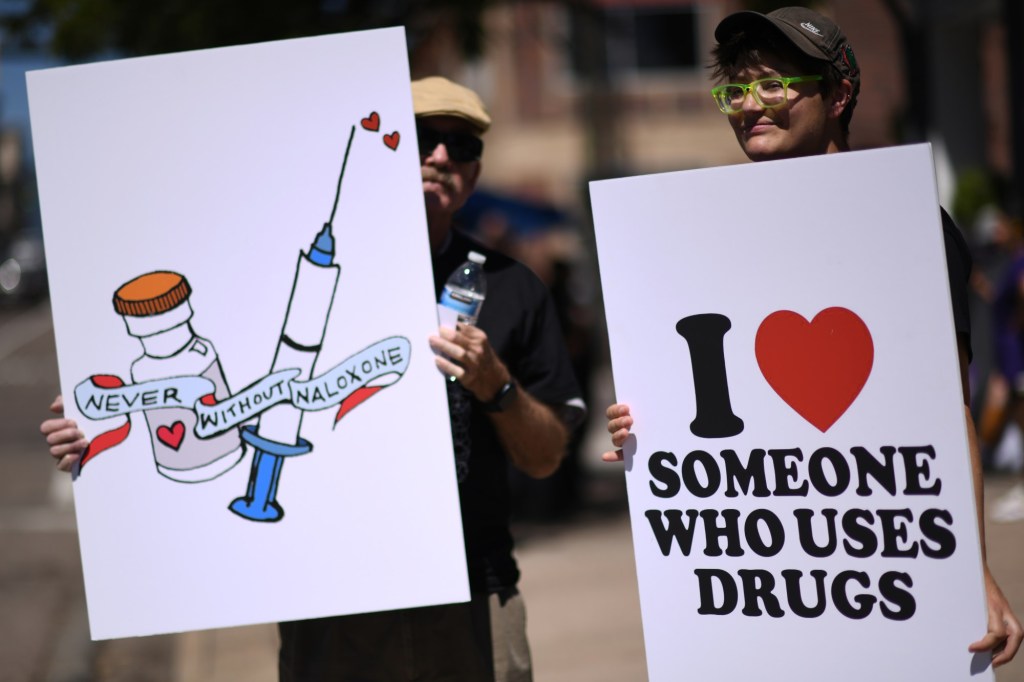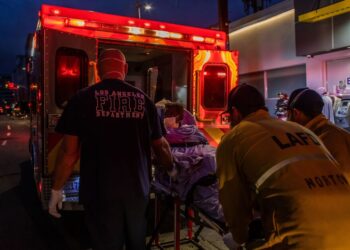Symptoms of an overdose can vary widely, depending on which substance, or substances, the person used. But increasingly, bystanders are finding themselves in the role of first responder as public overdose deaths increase in Denver.
Here are some symptoms of drug overdoses and tips on how to respond, according to the Substance Abuse and Mental Health Services Administration, Boulder County health officials and the National Harm Reduction Coalition.
Symptoms of an opioid overdose include:
- Loss of consciousness
- Pinpoint pupils
- Breathing difficulties or stopped breathing
- Choking, gurgling or snoring sounds
- Blue or purple lips or fingertips
- Being unresponsive to loud noises, shaking or painful stimuli
Symptoms of a stimulant overdose include:
- Increased body temperature
- Rapid breathing
- Rapid or irregular heartbeat
- Panic, hallucinations or paranoia
- Aggressive behavior
- Seizures and convulsions
If you encounter someone potentially overdosing, you first should call 911.
If the person is experiencing a stimulant overdose, help them stay calm and lie down. Make sure they are breathing, and protect their head from any sudden movement.
If it’s clear that they are experiencing an opioid overdose, shake them or rub their sternum with your knuckles — actions that are intended to help them regain consciousness.
If you have naloxone, use it. It will not harm them, even if they do not have opioids in their body. If they have a pulse but are not breathing, or their breathing is weak, perform rescue breathing: Plug the person’s nose and give one breath into the mouth every six seconds. Administer CPR if you are trained.
Colorado’s Good Samaritan law protects people from criminal prosecution of low-level drug crimes, like paraphernalia or possession of small amounts of drugs, if they report someone overdosing and remain on the scene. People who, in good faith, try to save someone are also protected from potential civil liability under Colorado law.
A map of…
Read the full article here







